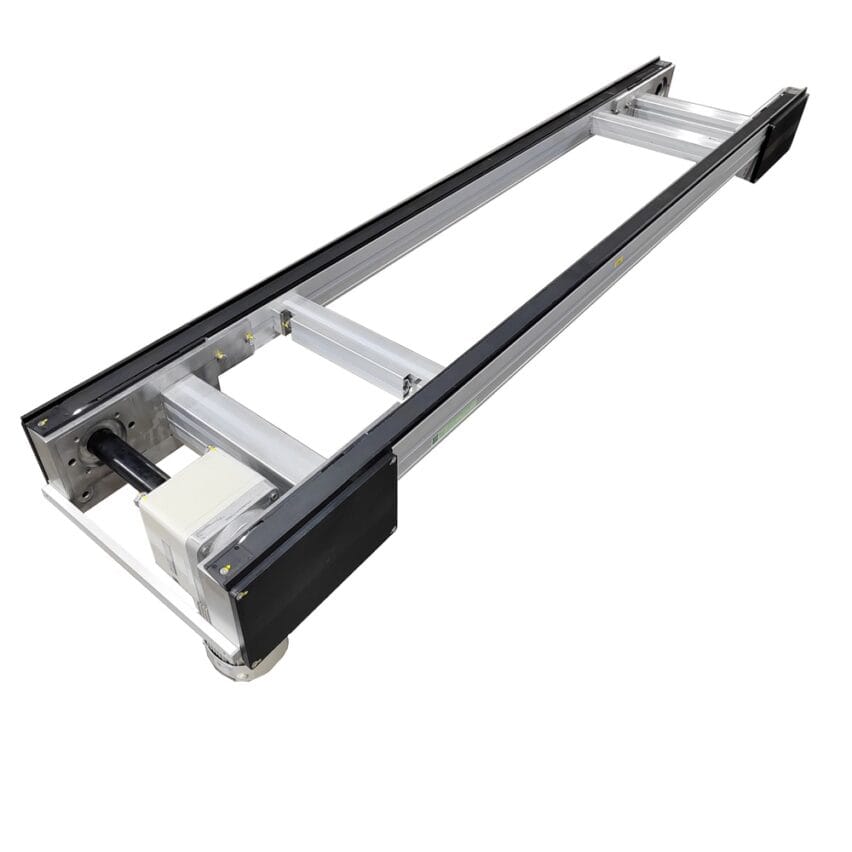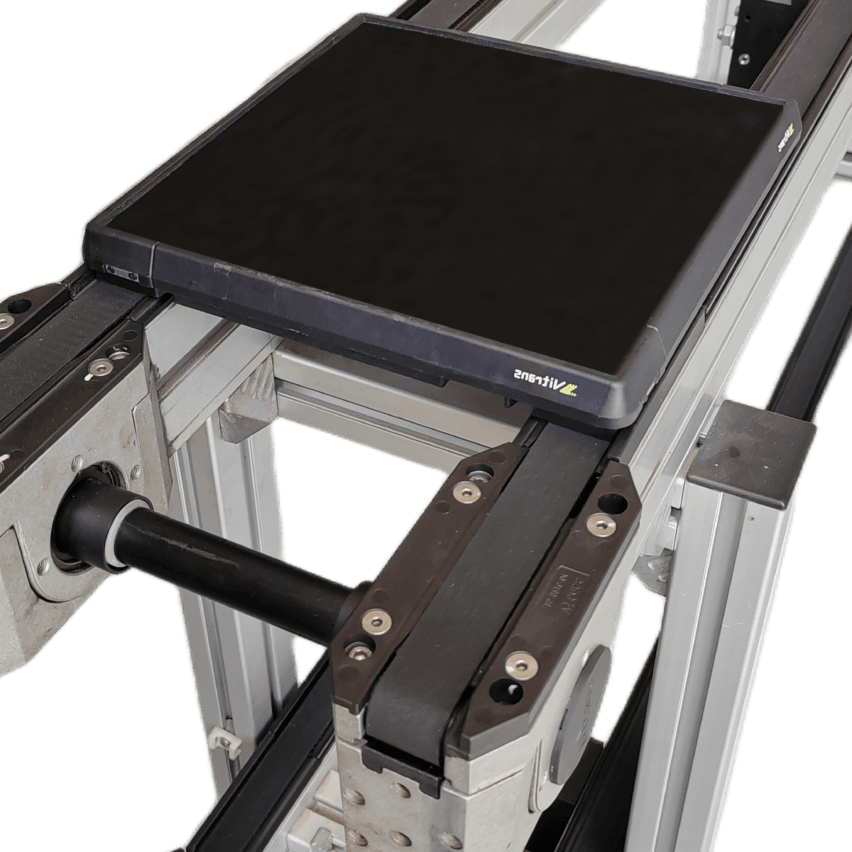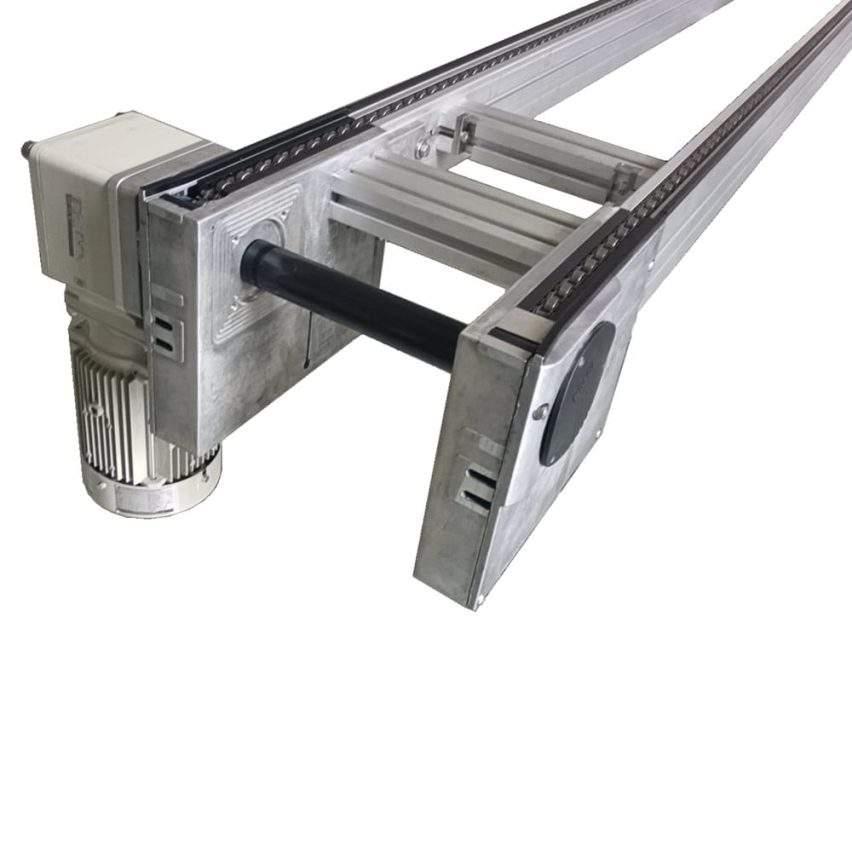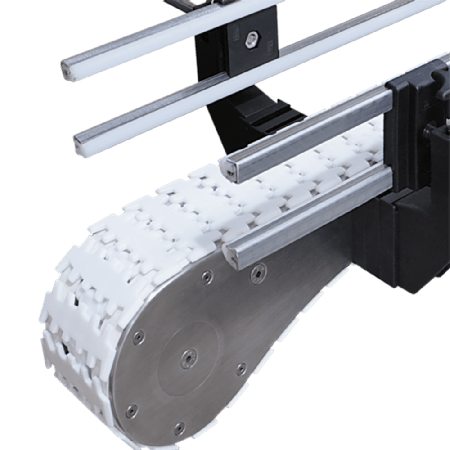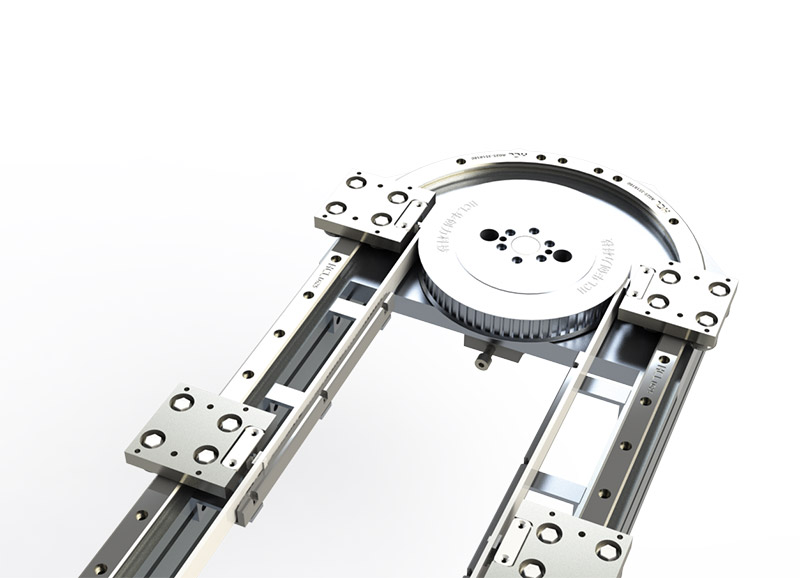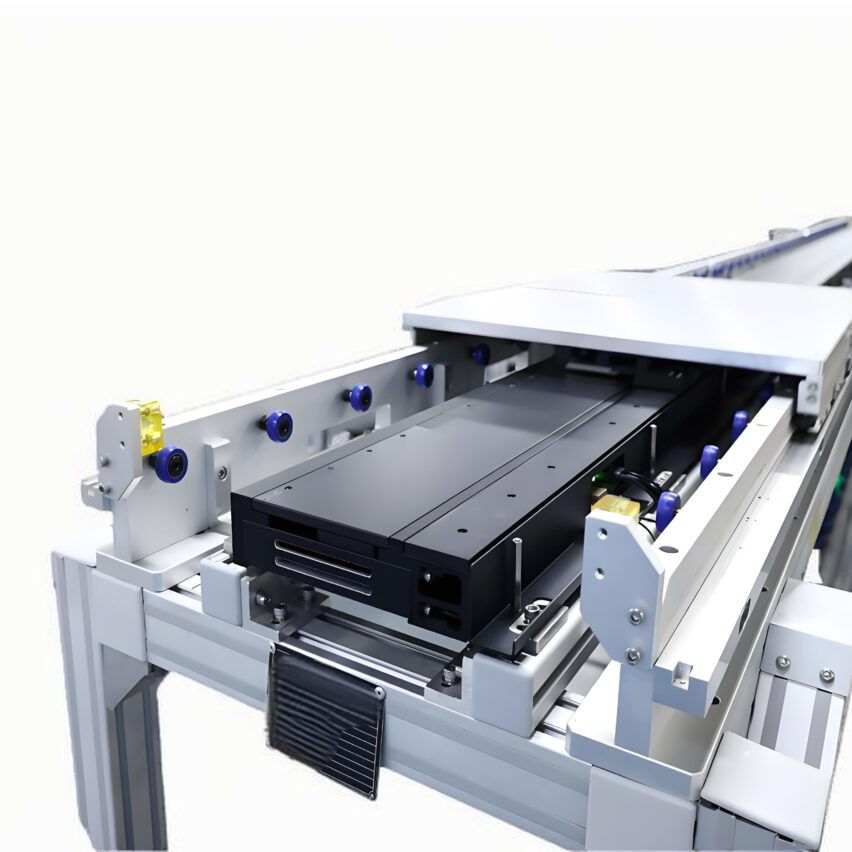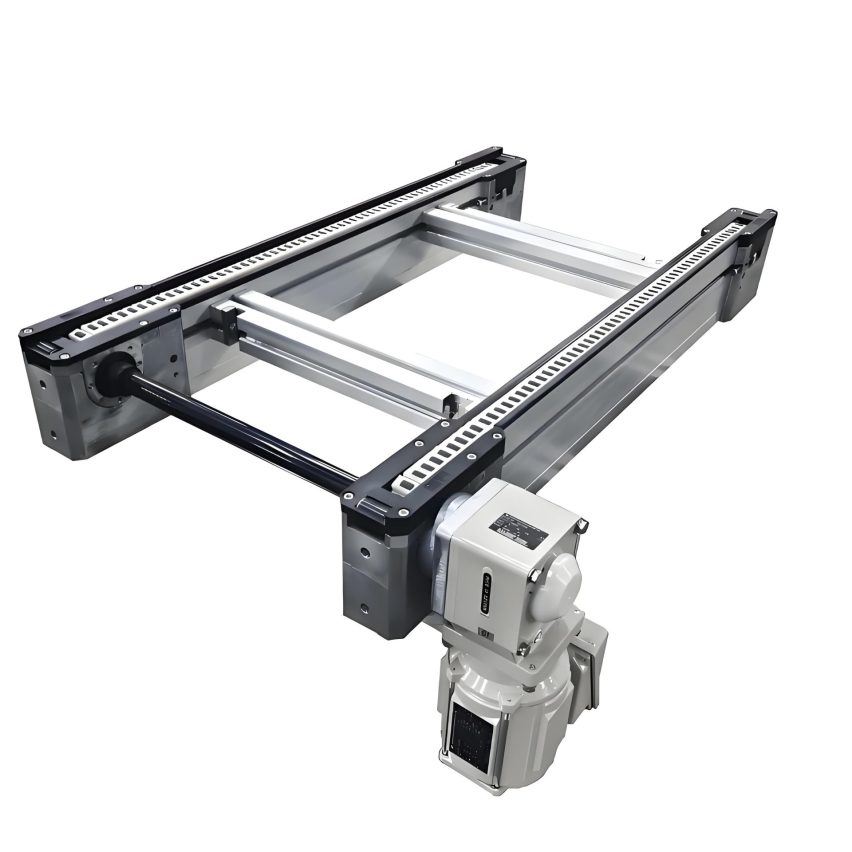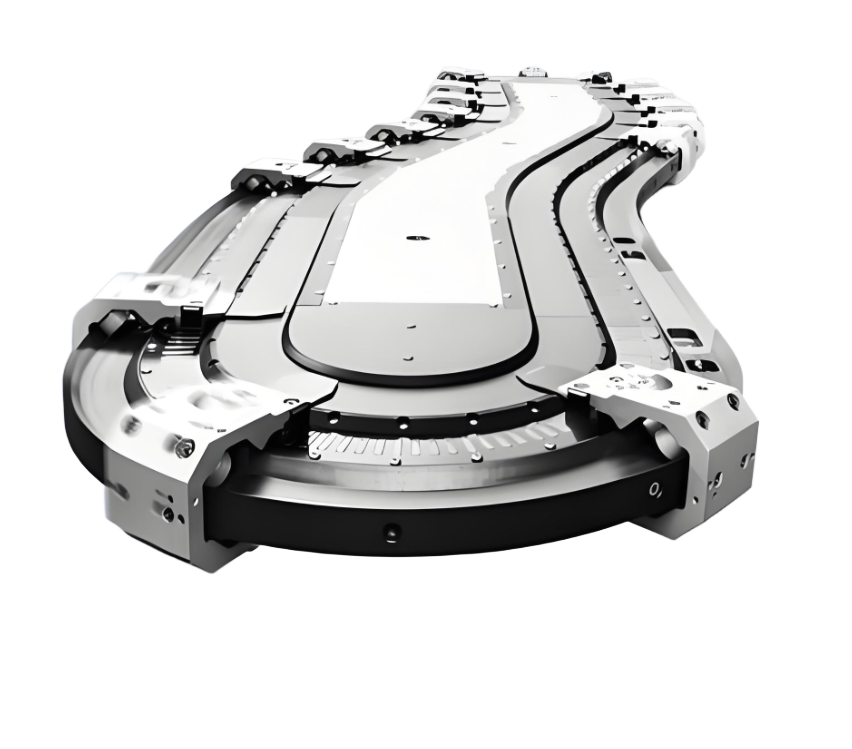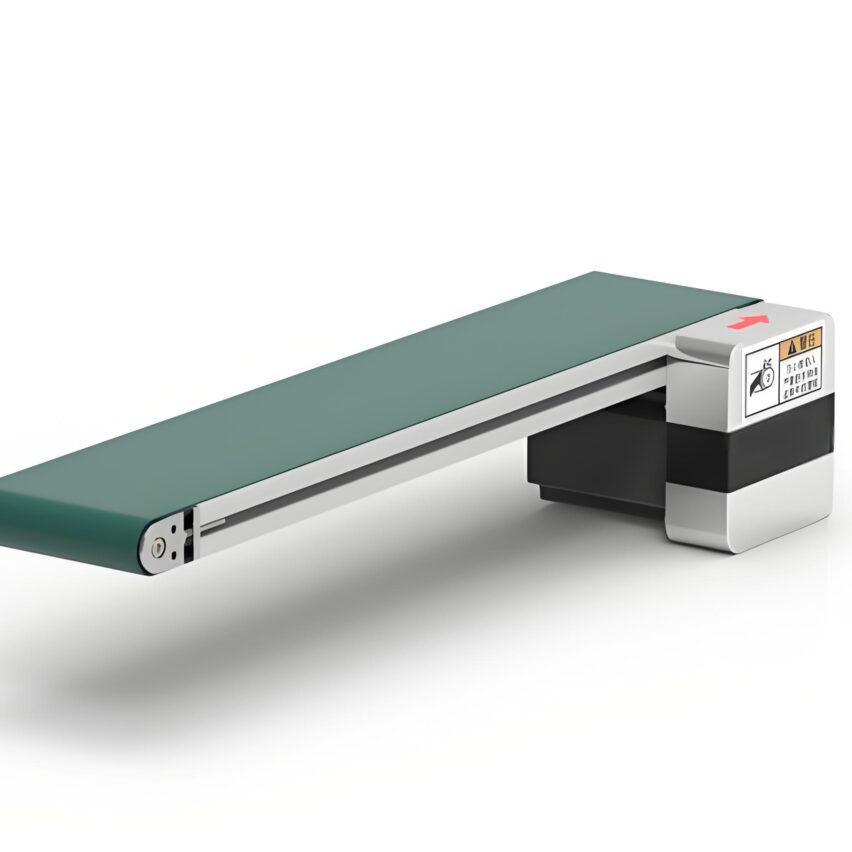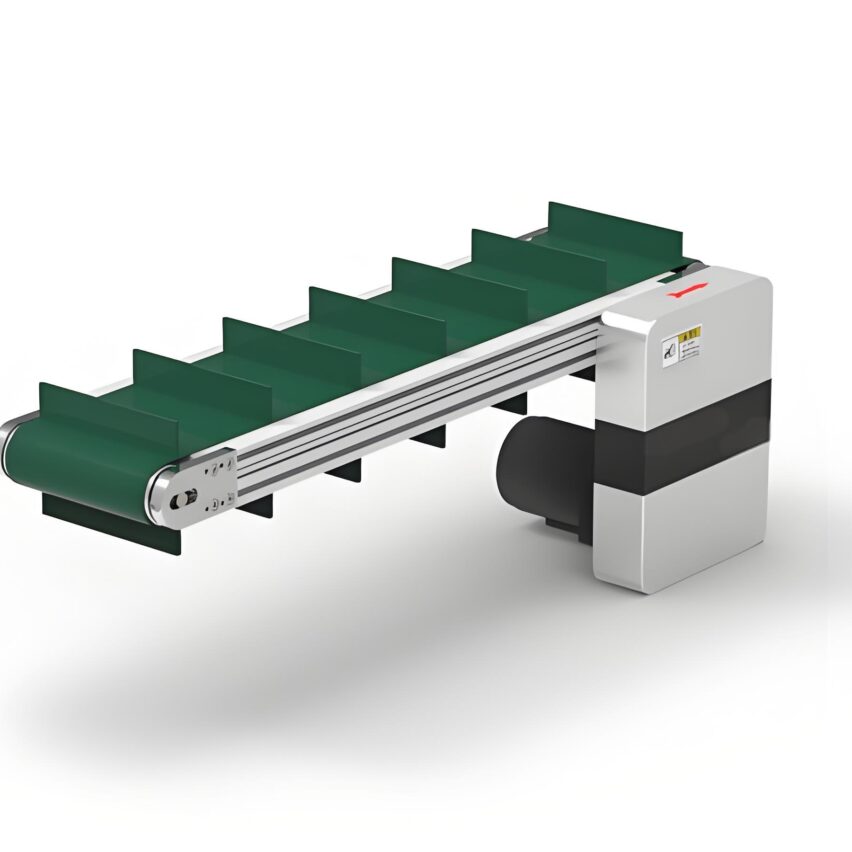When the cost of industrial land is climbing at an average annual rate of 121 TP3T.A precision-engineered, double-deck reflux doubler chain system frees up 37% of floor space.The new technology is a paradigm shift in the value algorithm of the manufacturing space, while at the same time increasing the flexibility of the production line by 300% through vertical circulation - not only an iteration of conveyor technology.
I. Spatial Reconfiguration Revolution: Compound Gain in Vertical Circulation
1. Underlying logic of space compression
- three-dimensional circulation architecture (GCI): The upper production layer carries the workpieces to be machined, the lower unloaded pallets pass through theCylinder jacking translators(Output force ≥ board weight × 1.5) Vertical reflux, eliminating the traditional production line end buffer redundancy, measured savings in floor space 37% or more.
- Flow topology optimisationThe first and last closed-loop design shortened the cycle path of the tooling board by 40%, and increased the production capacity of an electronics factory by 30% in the same area.
- Failure cost annihilationHydraulic buffer limiters reduced the collision rate of the workpiece from 11% to 0.5%, reducing annual maintenance costs by $1.2 million - proofImplicit cost control > explicit parameter optimisationof the iron laws of industry.
2. Mechanical philosophy of the doubling chain
make a copy of■ V₁: chain base speed (example: 2 m/min) ■ D: Roller diameter (key to drive incremental speed) ■ d: roller diameter (supports chain operation)``` When D=2d, the speed of the work plate can be up to 3 times of the chain (3x speed chain), and **heavy load scenarios must choose 2.5x speed chain** (overload tolerance ↑40%). --- ### **2. structural innovation: life and death details of double-layer synergy** **1. Subversive design of power topology** - **Dual-mode drive system**: heavy-duty section with **chain drive** (carrying 800kg door ± 0.5mm positioning), light-duty section switching **belt drive** to avoid the risk of jumping teeth. - **Slip compensation technology**: laser calibrated track splicing seam ≤ 0.05mm, eliminating jacking speed fluctuations. - **Law of safety redundancy**: jacking motor power = theoretical value × 130%, compensating for moment of inertia loss; spacing of adjacent jacking points ≥ 2 × length of work plate (600mm plate needs to be ≥ 1200mm). **2. Industry-tailored technology matrix** | Industries | Pain Points | Technology Solutions | |------------|---------------------|---------------------------| | Automotive | Heavy Duty Component Lifting | Polyurethane Block + Hydraulic Damper (Energy Absorbing 85%) | | 3C Electronics | Static Breakdown PCB | Antistatic Roller (Resistance 10⁶-10⁹Ω) + Carbon Brush Conductive Copper Ribbon (Static Discharge <0.1 sec.) | | Biopharmaceuticals | Microbial Residues | Nano Silver Coating (Bacteria inhibition 99.8%) + 50μm Ultrasonic Shock Plate | --- ### **Three, industry customised solutions: the technological edge to break through the pain points** **▎Automotive Manufacturing: The Art of Mechanics for Heavy Duty Cycling** - **Stereoscopic closed-loop logistics**: body parts through the air friction track (perpendicularity error <1.5mm) to achieve "welding-painting-assembly" cross-layer flow, the production line adjustment time shortened by 65%. - **Counterweight balancing system**: When the 800kg door turns vertically, the counterweight dynamically cancels the inertia offset, and the positioning accuracy is ±0.5mm. **▎Food & Pharmaceuticals: the ultimate defence for hygienic closure** - **Self-cleaning guide rail**: closed-loop spray system (0.5MPa water pressure) eradicates syrup residue, microbial residue <0.1g/m². - **FDA seals**: block dust intrusion, cleaning verification pass rate 100%. **▎Flexible production: redefining the value of space** - **Modular Corner Unit**: Quick release structure enables maintenance <15 minutes, spare parts inventory cost ↓40%. - **Lightweight alternative**: Aerospace aluminium frame (steel frame weight 35%) + carbon fibre rollers, drive energy consumption ↓28%. --- ### **IV. Intelligent O&M economic model: algorithmic war on failure decay** **1. Predictive Maintenance's Failure-Degradation Strike | Risk Types | Traditional Losses | Intelligent Countermeasures | Economic Value | |------------|-------------------|---------------------------|-------------------| | Top lift out of sync | Monthly downtime 42 hours | Hall sensor warning + slope ≤ 12Hz/sec acceleration curve | Annual savings of $8M downtime loss | | Guide shaft misalignment | Replacement cost = $80,000/time | Vibration spectrum analysis (error <±3μm) | 3.2 times longer life | | Air Line Leakage | Annual Loss = $24K | Pressure Sensor Real-Time Monitoring (±0.1MPa Threshold) | ROI Cycle <6 Months | **2. Stepwise cost optimisation path** ``Small and medium-sized enterprises input strategy ├─Primary stage: domestic 2.5 times the speed chain (cost ↓ 35%) + key bits of imported servo module └─Intelligent advanced: add IoT sensors ($120/each) → AI learning cylinder wear curve, failure interval 9 days → 60 days [4,7](@ref)`` --- ### **V. Exclusive data: the hidden value of the underestimated ** - **Land cost leverage**: a new energy vehicle enterprise achieves traditional 5,000m2 production capacity in a 2,000m2 plant, with an annual land cost saving of $3.6 million. - **Energy consumption black hole cracking**: Gravity potential energy recovery system makes drive energy consumption drop by 28% directly, and noise is reduced by more than 20dB. - **Flexible production premium**: modular design makes the production line transformation time shrink to the traditional 30%, adapting to the market of product iteration cycle shortening 50%. --- ### **Self-questioning: three questions for decision-makers to break the game** **Q1: How to avoid the return flow "dead zone effect"? ** A: **Third-order spatial defence model**: 1. **Flow topology**: The angle between the main conveyor line and the jacking machine is ≥60°, preventing the stacking of work plates; 2. **Buffer redundancy**: 1.2 times board length photoelectric induction staging area before jacking; 3. **Power backup**: dual cylinders in parallel (0 seconds switching). **Q2: How to select the model for high humidity environment? ** A: **Material corrosion resistance equation**:Corrosion Resistance Index = Ambient pH × Salt Spray Concentration
■ pH>8: choose 316L stainless steel frame (cost ↑25%, life ↑8 years)
■ Salt spray > 5 mg/m³: PTFE coating of rollers (coefficient of friction 0.04)"`Q3: The tipping point for the decision of single layer vs double layer?
A.Space value formula::make a copy ofSingle-storey applicable: Monthly production capacity <10,000 pieces or plant cost $100/㎡ or Process>15 passes need compact layout.``` > *Empirical*: After switching to a double-layer chain in a power plant, the ROI cycle was reduced to 14 months, and 2 new production lines were added to the same area. --- > **Core Competitiveness of Future Production Lines = Spatial Mobility × Failure Decay Rate**: In the era of Industry 4.0, **Hidden Cost Annihilating Capability** is becoming the new watershed of the manufacturing industry - those who tame physical space with algorithms will be able to tear open the cracks of growth amidst the dual constraints of land and energy.

